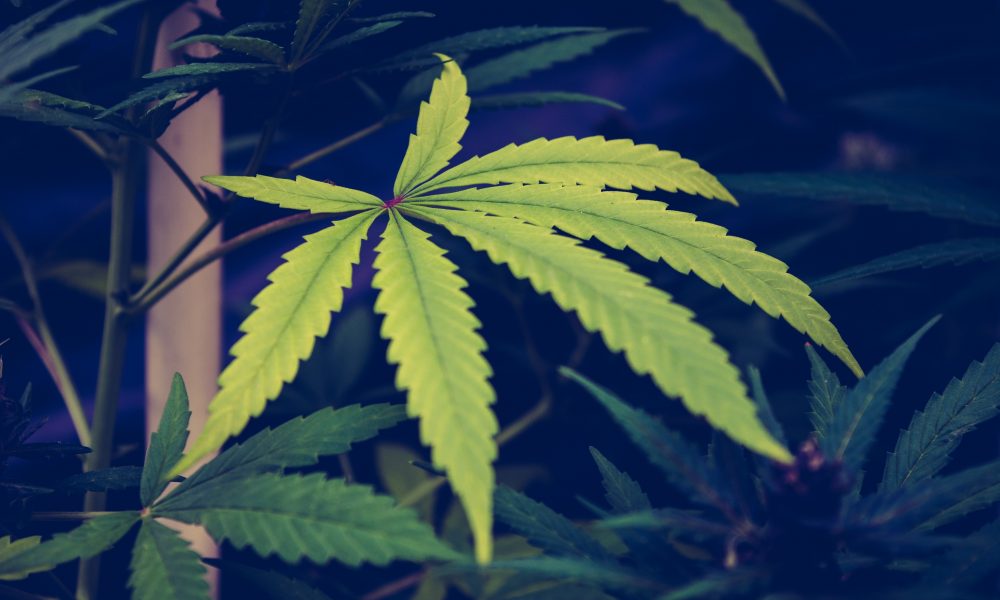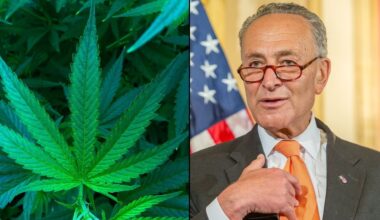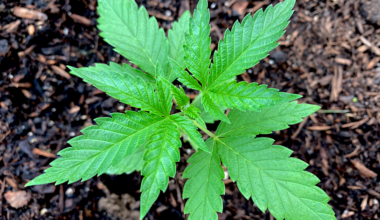“We need federal and equitable legalization of cannabis so that no one is left behind.”
By Nikki Fried, Florida Agriculture Commissioner
Four years ago, when I was running for the office I hold now, two major U.S. banks shut down my campaign accounts over my advocacy for medical marijuana patients and the state-legal cannabis industry in Florida. As a majority of states had enacted some sort of legal cannabis programs by that time—with California’s medical marijuana program dating back to 1996 and Floridians overwhelmingly voting to legalize medical marijuana in 2016—these actions seemed archaic in 2018.
Unfortunately, four years later, cannabis legalization has yet to come to fruition on the federal level. During this same time, public support for the end of decades-long prohibition continues to grow as does the state-legal industry. But the existing discrepancies between state and federal cannabis policies is creating a system of winners and losers, stifling economic opportunity, punishing patients and allowing the inequities created by the failed War on Drugs to continue to wreak havoc on Black, Brown and low-income communities.
Everyone knows that legalization is inevitable. But while these discrepancies between federal and state law continue to exist, we have tens of thousands of people—the majority of which are persons of color—sitting in jail right now who even upon release will face barriers to gainful employment, housing access and access to capital due to nonviolent minor drug charges. We have medical marijuana patients who are losing eligibility for good-paying jobs and unable to qualify for certain kinds of housing. We have veterans suffering from PTSD and other service-related injuries unable to access medical marijuana through the VA. We have cannabis entrepreneurs and businesses who cannot utilize the financial services system.
I for one am tired of waiting on the sidelines while these harmful discrepancies continue, perpetuating inequality in our society.
That is why I filed a federal lawsuit in my official capacity as Florida’s commissioner of agriculture and consumer services, as my department administers concealed weapon permits in the state, bringing attention to just one of the many ways in which the federal government’s inconsistent and illogical cannabis policies are creating not only confusion but actual harm. In this particular case, it is the infringement on the constitutional rights of state-legal medical marijuana patients in Florida due to current language on a federal form prohibiting them from purchasing a firearm.
This is in no way about challenging the federal government’s right to enact reasonable gun regulations to protect the public, as I remain a staunch advocate for more common-sense gun violence prevention measures.
When I came into office, I made a commitment that my department would make sure a thorough background check was conducted for every single concealed weapon applicant—something the previous administration failed to do—and we have met and kept that promise. My predecessor was also a defendant in a case challenging Florida’s extreme gun pre-emption law, and I not only had my department removed from the state’s appeal but instead joined the litigants in their fight. The Florida Supreme Court will be taking up our lawsuit this summer, and we remain committed to supporting the right of local cities and counties to pass local gun safety ordinances free from state interference. Additionally, my department has been using its lawful authority and carrying out its legal duty to suspend the licenses of anyone charged with disqualifying offenses, suspending 35 licenses to date of individuals involved in the January 6th attack on the U.S. Capitol.
My record is clear when it comes to not only calling for but taking concrete actions to further gun safety.
What this lawsuit is about is a path to cannabis legalization and putting a stop to this misguided, racist federal prohibition. It is beyond time to put an end to the nonsensical policies and glaring discrepancies that punish some while allowing others to profit and forces patients to choose between their medicine and employment, or a roof over their head, or access to capital, or their constitutional rights.
Unfortunately, these dilemmas posed by federal prohibition of a state-legal medicine affects a massive number of Floridians. Currently, over 700,000 Floridians are medical marijuana cardholders. Outside of registered cardholders there is a huge pool of potential applicants: over 400,000 Floridians have epilepsy, an average of 115,000 new cancers are diagnosed in Florida each year, and countless others live with other qualifying conditions like PTSD, ALS and chronic pain. With 37 other states home to medical marijuana programs, these numbers and this impact is multiplied further nationwide.
The solution is just as clear as the inequities needed to be addressed are evident. We need federal and equitable legalization of cannabis so that no one is left behind. We need policies that allow this medicine to be equally available to all without resulting in the surrendering of other rights or opportunities. That’s why this is a priority of mine, and why I will never stop coming up with outside-the-box approaches to push this fight forward.
Nicole “Nikki” Fried is the Florida Commissioner of Agriculture and Consumer Services and an independently-elected member of the Florida Cabinet. She is also running as a candidate for the Democratic nomination for Florida governor.
Top Schumer Aide Talks Next Steps For Marijuana Legalization And Cannabis Banking Reform
Medical Disclaimer:
The information provided in these blog posts is intended for general informational and educational purposes only. It is not a substitute for professional medical advice, diagnosis, or treatment. Always seek the advice of your physician or other qualified healthcare provider with any questions you may have regarding a medical condition. The use of any information provided in these blog posts is solely at your own risk. The authors and the website do not recommend or endorse any specific products, treatments, or procedures mentioned. Reliance on any information in these blog posts is solely at your own discretion.







